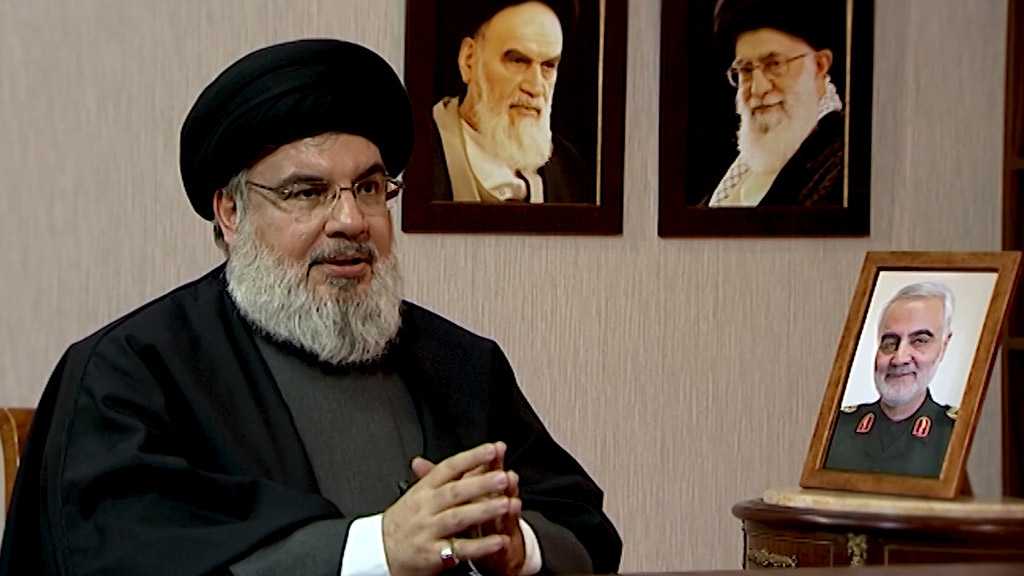
Hizbullah leader warns ’ISIS’ is A Growing Threat to the Region, must be Defeated
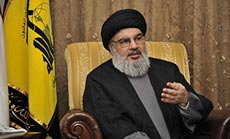
Al-Akhbar conducted an exclusive six-hour-long interview with Hizbullah Secretary General, Sayyed Hassan Nasrallah. In a multi-part series published over the last two days, journalists Ibrahim al-Amin, Wafic Qanso, Hassan Ileik and Maha Zureikat sat down with the party's leader, where he discussed in detail issues ranging from Syria, "ISIS", the recent Gaza war, the 2006 war with "Israel", domestic Lebanese issues and his own personal habits.
The following section is focused specifically on the emergence of the "Islamic" State and its threat to region.
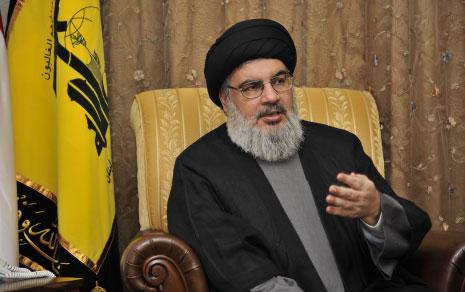
Some say Hizbullah began as an Islamist movement that did not believe in borders. At a later stage, it transformed into a national resistance movement that is Islamic in its nature. Today, it is a transnational resistance movement, fighting in Syria, in addition to news about its presence in Iraq and Yemen. To what extent is this precise and true? And to what extent do you agree with it?
I would like to present things as they are, outside speculation and politics. Going to fight in Syria was, in the first place, to defend Lebanon, the Resistance in Lebanon, and all Lebanese without exception. The recent events in Ersal confirmed our perspective, even if our obstinate adversaries see it otherwise. Some people said we waged a preemptive war in Syria, but I don't think this is precise; the war was at our borders.
Some March 14 factions today do not stop talking about sovereignty and nonintervention. They do not know, for example, that Ersal's mountainside, extending for tens of kilometers, and several other mountainous areas in Bekaa have been occupied by armed Syrian groups since the beginning of the events. They established training camps, operations rooms, field hospitals, barracks, and meeting points inside Lebanese territory. That was before the first Hizbullah fighter went to Syria.
They tell us: you went there and brought them. But they have been here for a while. It has nothing to do with preemptive war. Qusayr is at the borders. Without the war waged in Qusayr, it was absolutely certain and this is confirmed every day that if it wasn't for the Resistance, the armed groups would have quickly entered into Hermel and northern Bekaa. Our fighting in Syria does not contradict the national dimension of the Resistance, since we are defending our country at the borders. It is true we went to some areas inside Syria, but the battle was basically in the border regions.
What is more important is that everyone is threatened. What we used to say three years ago is today what everyone is talking about. Even our adversaries acknowledge that the situation in the region is a threat to [Lebanon's] entities, regions, societies and peoples. It threatens the whole region and is beginning to impact the interests of major global powers. I believe it is the duty of all those who are able to be part of this battle to safeguard Lebanon, Syria, Iraq, Palestine, the region, the Palestinian question, Muslims, Christians, and religious minorities.
Leave all theoretical, strategic, and tactical research aside and political and intellectual debate. There is a major threat, that conquers and moves forward, committing horrendous massacres, without any controls or limits in the intellectual, moral, religious, or humanitarian sense. There is a beast on the loose in the region. Should we thank or condemn those who fight this beast, to stop it from devouring the people of the region, its states, and entities? As for those who created and raised this monster, it is another matter, which will be dealt with later. I am still betting that a time will come when our opponents and those who remain unreasonable will tell us: you were right and thank you.
So you are certain this will happen?
The popular mood has changed. Politicians are the last ones who will change their frame of mind, since they are counting their benefits. Let's take Ersal for example. Is the mood of its residents different today than it was before the recent events? Like some Future Movement leaders, we see them on the screens asking: is this how Ersal should be reawarded after it hosted and sheltered the refugees?
Of course, some people in Ersal did more than that, turning it into an advanced military base for armed groups. This was evident in al-Nusra Front's statement following the events, which mentioned the mistake they committed in Ersal, because it meant so much for them. Through its geographic position, Ersal provided to the armed opposition - and I am not saying the residents of Ersal - what no other part of Lebanon could offer. So how did they reward the people of Ersal? Even before the recent battle, armed groups used to raid the town to steal, pillage, kill, and kidnap. Before the recent events, the people of Ersal asked for protection, because the de facto rulers were ISIS and al-Nusra.
Look at the mood of Christians in Lebanon. Didn't it change? In northern Bekaa today, there is no longer March 8 Christians and March 14 Christians. Those who wanted to protect their home, village, or property were ready to carry guns, side by side with the army, to confront the armed Syrian opposition groups. There is no question about this. It is confirmed by data from the field and the villages. This mood is present today all over Lebanon. However, there are political figures who have an interest in belligerence. Today, there are those who say they will fight the battle against extremism, intolerance, and terrorism. Alright, show us what you mean. Although the Lebanese government does not have a list of terrorists yet, there are those who prepared this list and identified the terrorists.
Did MP Walid Jumblatt take his position in this context?
Definitely, this is part of his considerations. This monster called ISIS does not differentiate between friend and foe or ally and enemy and and it has no restrictions. Fighting these people is not a question of weapons and confrontation on the ground. The playing field should be established on thought, beliefs, culture, emotions, and feelings. It is not easy to reach the level of hatred, rancor, and emotional preparedness to spill the amount of blood they have. Is there anything similar in history? ISIS, according to the United Nations, buried Yazidi children and women alive. They turned slaughter into an art. How did they get to this point? This mentality was manufactured for years to reach such a level.
Ultimately, who is in danger today? Look at the experience of ISIS in Syria. They killed everyone else. In Iraq, some say this is a war between Sunnis and Shia. How many Shia are in Ninevah and Salaheddine [provinces in North Iraq]? They killed Sunni mosque imams and Sunni tribal sheikhs who refused to pledge allegiance to the caliphate. They displaced a large number of Sunnis, demolishing their mosques and shrines before they did so to the Shia and their shrines. This is in addition to what they did to other minorities, like Christians and Yazidis. What logic allows one to displace tens of thousands to the mountains, besieging them until they die of thirst or hunger, watched by the world.
This threat does not know Shia or Sunnis, Muslims or Christians, Druzes or Yazidis, Arabs or Kurds. This beast is growing and expanding. There are certain fronts in Syria and Iraq that are making a stand against ISIS while some other fronts are witnessing local improvement on the terrain, in a city here or a village or town there. However, the capacity, preparedness, and resources available to ISIS are huge. This is a cause of concern to everyone and everyone should be worried.
For example, the Kurds made bad calculations. When things started happening in Mosul, the Kurds entered into disputed Iraqi territories and said they were not concerned with other areas. It was the responsibility of other Iraqis - Shias, Sunnis, Yazidis, and Christians - who should take care of themselves. The Kurdish leadership believed that ISIS will reach a point where it will stop its expansion and that they are not a threat to the Kurdish region. This could have been their analysis or based on guarantees by ISIS or its regional sponsors. However, when ISIS was only 30 to 40 kilometers from Erbil, the Kurdish leadership had to ask for US, Western, Iranian, Iraqi, or any other help.
ISIS does not have any borders. It is a real danger and many countries and sides are worried. One of the main features of the organization is its ability to attract all those who adopt al-Qaeda's theories or Wahhabism. How difficult is it for someone from al-Nusra to join ISIS? There's no problem there, since they possess the same ideology, idea, literature, behavior, and practices. Their dispute is institutional, between those who support Abu Mohammed al-Joulani and those who support Abu Bakr al-Baghdadi as the emir. So if someone from al-Nusra discovers that ISIS is achieving his goals, he will join them. ISIS is able to dissolve al-Nusra, not necessarily by military force, but by attracting al-Nusra members into [joining] ISIS.
Those who carry this takfiri Wahhabi [ideology] were being prepared for decades and billions of dollars were spent on them. Anywhere in the world, they can find hope, security, purpose, and the future in ISIS. Some countries know what they created and nurtured. Thus, their diagnosis of the threat of ISIS is more important and precise than ours for example, since they know what they have. Without exaggeration, there is actual terror in the Gulf countries and Saudi Arabia today. This is the thought they have been teaching people for decades in the schools and curricula.
Thus, we say there is a grave danger and everyone should be worried. There is a real threat against entities, societies, states, people, and, certainly, religious minorities. Inside the Islamic circle, all the confessional minorities are under threat; all the Ashaari Sunnis - who make up the majority of the sect - are in real danger. The threat is to their lives, money, honor, children, women, and everything they hold as sacred.
But we don't want to create a state of terror among people. This danger can certainly be confronted, overcome, and defeated, but the situation needs to be taken seriously. In Qusayr, Qalamoun, and other places, we did not fight the Free Syrian Army, the secularists, or the liberals. We fought that ideology and defeated it. But people need to take a stand and be aware and on alert.
Concerning former Prime Minister Saad Hariri's return [to Lebanon], could it be that the Saudis have started to sense the need to pick up the pieces and hand over the leadership to the moderate current against terrorism?
It is possible.
In your recent meetings with politicians, you anticipated the ISIS incursion towards [Iraqi] Kurdistan before it occurred. Why do you think they headed north and steered away from Saudi Arabia, Jordan, and Turkey?
Their time will come. Where there are followers of takfiri thought, there will always be fertile ground for ISIS. This exists in Jordan, Saudi, Kuwait, and the Gulf states. No state will be safe from the wrath of ISIS when its time comes, even if it believes it could provide support for this organization or try to exploit it. The Turks are in a similar situation. In any case, did ISIS parachute from the sky? Everyone knows which borders those fighters - who came from all over the world - had used to get in, who were their facilitators, and who provided them with money, weapons, and capabilities. From the start, we believed that they will taste their own poison. They created this serpent and it turned against them, whoever they are; the Americans, the Turks, or the Gulf States. Those who believe they could run this game and control its tools and directions are deluded and suspect.
Doesn't some responsibility fall on the Syrian and Iraqi army in the growth of ISIS and delaying the confrontation?
We cannot blame Syria, since it started the confrontation with the armed groups at the start, regardless of who they were and their names.
Didn't the Syrian army stay away from ISIS at one time?
There was no contact between the Syrian army and ISIS. In the Iraqi situation, there is great debate. What occurred in Mosul is a serious issue and was not due to ISIS heroism. Then why would they stop their incursion in many places due to the efforts of some official and popular Iraqi forces?
Do you think the advance of Baghdad has stopped?
As far as I know, yes - to a large degree.
What do you think of Baghdadi's media presence?
It is not his policy to appear in the media, but I think he appeared to solve a theological issue. When ISIS proposed him as caliph, this started a debate in the Muslim world among Sunni scholars about how to pledge allegiance to someone whose name and personality is unknown and when information about him is unavailable. It is forbidden to pledge allegiance to an unknown person; we should pledge to a known person. Thus, he was forced to come out and become known, to open the door for people being able to pledge allegiance to him, grounded in the nature of his administration and movement.
He traced his bloodline to Quraish, since there is a hadith [saying by the Prophet] which indicates that imams are from Quraish. According to the theological schools, the caliph must be from Quraish. However, the emir of a country, whether king, president, or prince, cannot be considered the Muslim caliph, who should be from Quraish. Since Abu Bakr al-Baghdadi's project is the caliphate, he had to tell them he was from Quraish to legitimize the pledge. He wants to tell us he is from Quraish and a member of the [Prophet's] house, since this question has an important impact for the both Shia and Sunnis.
The Sunnis love and respect the people of the [Prophet's] house and this is not debatable. It is a special segment and sometimes there are errors in this distinction. For example, the term nawasib [those who raise] or nasibi is not a Shia term. It is an Islamic term, used by both Shia and Sunni scholars, which means those who raise/carry enmity towards the people of the house, peace be upon them, those who consider them as enemies, are malicious and offensive to them. This is not a Shia term. If you look at the books used by Sunni scholars to evaluate the hadith tellers, they would say so and so was a nasibi; they also use the term. The nawasib are a special case. Most Sunnis love and respect the people of the house, peace be upon them. But this love varies from place to place. Thus, [Baghdadi] says he is from Quraish and I am also from the people of the house. I don't know if what he claims is true, is he Hassani or Husseini or Quraishi? God only knows.
Source: Al-Akhbar
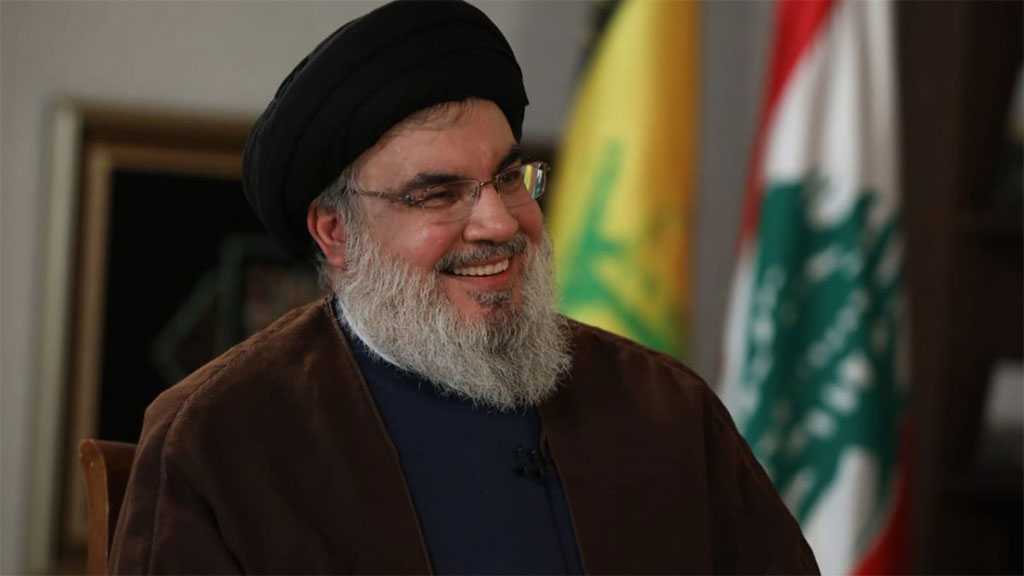
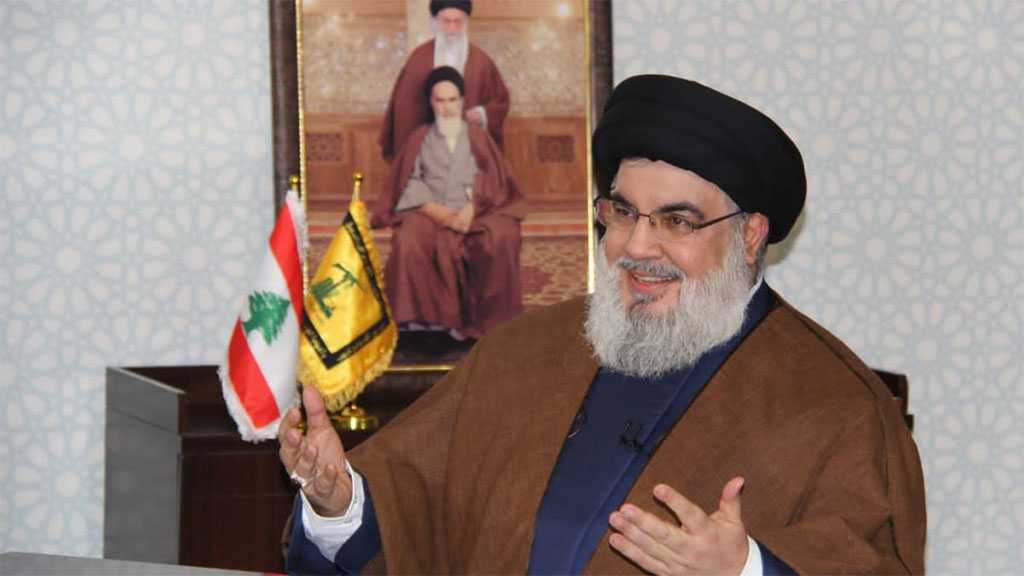
![Gen. Soleimani: Sayyed Nasrallah’s Entire Existence Is Sincerity… I Love Him [Documentary]](https://english.alahednews.com.lb/uploaded2/images/20220908122823.jpg)
